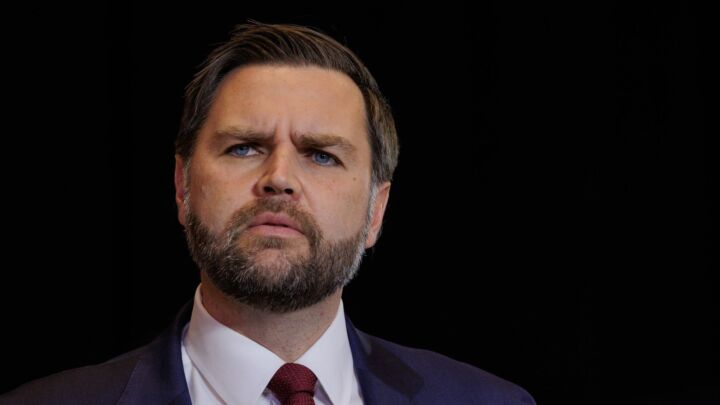Politics online: all tweet and no light
From Gove to Gaza, politics-by-Twitter is mainly about showing off.

Want unlimited, ad-free access? Become a spiked supporter.
As anyone who has tried to have a sensible discussion on Twitter, or who has trawled through the sometimes deranged comments under political blogs, will testify: the internet as a forum for political discussion isn’t always a happy or useful place. On social media, it’s hardly ever. Last week’s events, what with Michael Gove’s exit from his education post in the Cabinet and reaction to Israel’s behaviour in Gaza, have once more showed why.
Not a minute now passes without someone posting gruesome images of dead Arab children, or a teacher declaring her delight at the departure of Gove. This isn’t to belittle the plight of Gazans or the workload of teachers. But the way people have been carrying on you’d think teachers are the only people in the world who have problems, and that Israel was the Fourth Reich – or, as Alexei Sayle has bizarrely suggested, the new incarnation of Jimmy Savile.
The problem here is the medium. Social media encourages self-obsession; it encourages us perpetually to manicure and manipulate our public image. In the process, it gives us an inflated sense of self-importance, while paradoxically making us feel more worthless.
Facebook, a medium that gives users the impression that everyone else’s life is amazing and that only you have problems, is isolating. Social media feeds insecurity with its insatiable desire to be ‘liked’ or retweeted, or to impress people with how much you care about something everyone else also cares about. Only more so. The current dismal exercise in conspicuous one-upmanship over Gaza has not been pretty.
Social media makes people more narrow-minded and myopic in their politics. Twitter users harvest news from tweeters they already agree with, and from sources that don’t challenge their opinions. And it’s a particularly unsuitable medium for political exchange because the written word isn’t suited for conveying – or facilitating – doubt and nuance. Sarcasm is nigh-on impossible. And as we all know, the self-righteous, privilege-checking online mob, armed with certitudes, can be far more ferocious when behind the safety of a keyboard and a pseudonym.
By no means am I above this egregious behaviour. My sometimes ill-judged poujadist asides online do annoy some people, I’m certain – certain, because I have been irritated by others going on and on about how much they *heart* the NHS, or how very cross they are about the treatment of gays and lesbians in Russia, or how concerned they are about ‘everyday sexism’ in newspapers that are read by hoi polloi.
The strange thing is that this sanctimoniousness usually emerges from mostly otherwise delightful people. And yet, politics on Twitter sometimes feels like an echo chamber of conformity. It certainly has a censorious menace to it. Twitterstorms by faux-outraged bien pensants are merely the most obvious example of this phenomenon.
If you’re an Arab or have an interest in the region, I don’t blame you for worrying about Gaza. And the courageous and lovely Peter Tatchell has more than earned the right to become a gay-rights megabore. But why, as spiked’s editor has argued, make a special case for demonising Israel? Because it’s fashionable. No one loses any social standing by doing so. Social media is where, sadly, the political has indeed become the personal.
Often, the more tenaciously voiced is the opinion, the less sincere it is. The liberal left in Ireland, for example, is ferociously anti-Israeli, which I suspect is to a large degree displacement activity, and republican guilt for having given up on reuniting the 32 counties. Similarly, my hunch is that British liberals are so ostensibly and ostentatiously passionate about gay rights because they have given up on the British working class. Indeed, the open demonisation of UKIP-voting Brits by metropolitan liberals showed its unpleasant face in the European elections this year.
There are complex factors afoot on these subjects, admittedly. The importance of land is central to the Irish psyche, and thus the Irish are naturally sympathetic to those who have lost it. But the Irish are also envious of others who are successful, and this includes the Jews. And whereas many middle-class types genuinely are saddened by the treatment meted out to Alan Turing and Oscar Wilde, another classic symptom of displacement activity is overcompensating for the wrongs of the past to avoid having to address those of the present.
Politics on social media is often the cyber equivalent of wearing an extra-large Remembrance Day poppy in the middle of October, akin to the cynical way large corporations advertise in the Guardian, sponsor events at Glastonbury, or fly the LGBT flag for their own means. Like the beta-male at a student party who boasts he is a feminist, political posturing on social media isn’t only insincere at times – it can also be positively devious. It’s ersatz politics for the selfie generation. More to the point, does it actually change anything?
Patrick West is a spiked columnist.
£1 a month for 3 months
You’ve hit your monthly free article limit.
Support spiked and get unlimited access.
Support spiked – £1 a month for 3 months
spiked is funded by readers like you. Only 0.1% of regular readers currently support us. If just 1% did, we could grow our team and step up the fight for free speech and democracy.
Become a spiked supporter and enjoy unlimited, ad-free access, bonus content and exclusive events – while helping to keep independent journalism alive.
———————————————————————————————————————————–
Exclusive January offer: join today for £1 a month for 3 months. Then £5 a month, cancel anytime.
———————————————————————————————————————————–
Monthly support makes the biggest difference. Thank you.











Comments
Want to join the conversation?
Only spiked supporters and patrons, who donate regularly to us, can comment on our articles.